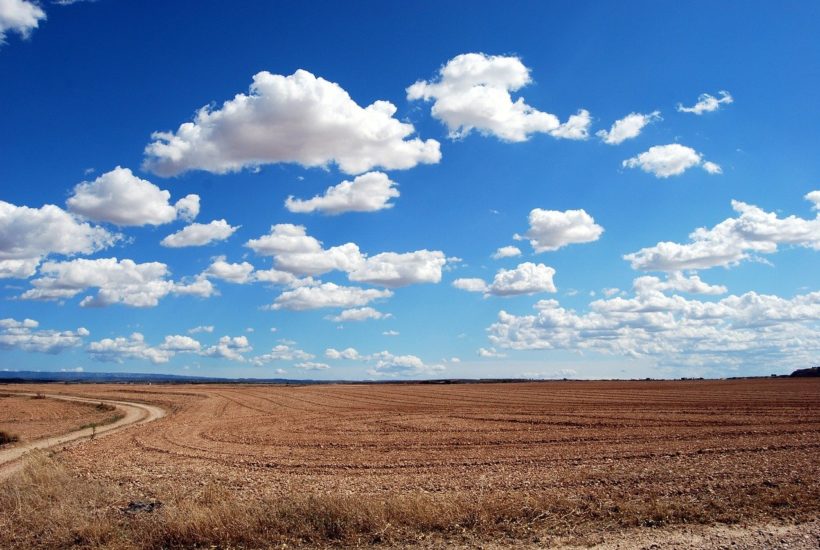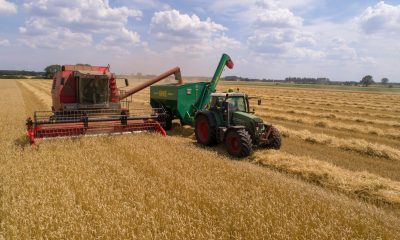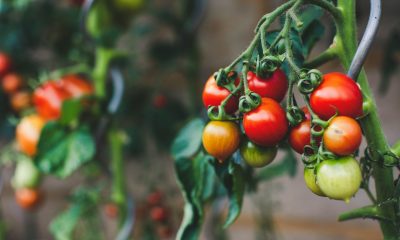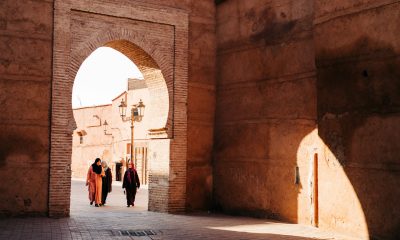Africa
Agricultural Insurance: Where Does Morocco Stand?
The offer proposed today by professionals in the sector, in this case, MAMDA, the leading insurer of the agricultural sector in Morocco, provides a range of protection to farmers against hazards ranging from drought to hail, frost, high winds, floods and others. This makes Morocco one of the few African countries to implement agricultural insurance subsidized up to 90%.

Morocco is one of the few African countries to offer its farmers a 90% insurance subsidy. Despite this boost, only 30% of operators are insured while the kingdom is currently experiencing its worst drought in 30 years.
Hailed by the entire sector, the exceptional program to combat the effects of drought and delayed rainfall is more than a breath of fresh air for farmers. And one of the main axes of this ambitious program, which provides for a series of urgent measures covering the various pivots of the agricultural sector, is undoubtedly the agricultural insurance, next to the protection of the animal and plant capital, the management of water scarcity as well as the alleviation of the financial burdens of farmers and professionals. Moreover, it will be proceeded, without delay, to the payment of compensation for a capital insured by farmers reaching 1.12 MMDH on an area of 1 million hectares.
The Moroccan Agricultural Insurance Mutual (MAMDA) has announced its contribution to the implementation of the program through two key measures to accelerate the pace of expertise and give priority to affected areas. This was stated last Thursday by Mahmoud Oudrhiri, Deputy Director-General of MAMDA-MCMA, who explained that the purpose of the multi-risk climate insurance is to cover farmers against a multitude of agricultural risks, including drought, floods, and problems related to major crops such as pulses, grains, and oilseeds. But how much do you pay for agricultural insurance?
Read more on the subject and find the latest economic news from around the world with the Born2Invest mobile app.
Expanded coverage
To enable workers on the land to benefit from protection, an agricultural insurance product “Taamine Al Mahssol” was launched in 2016 as part of a public-private partnership between the state and the Saham Assurance company. It was intended to allow farmers to benefit from a very broad coverage. In detail, the product benefits from significant subsidies, since the share paid by the farmer represents, on average, only 10% to 15% of the insurance premium, the remainder being paid by the State?
The offer proposed today by professionals in the sector, in this case, MAMDA, the leading insurer of the agricultural sector in Morocco, provides a range of protection to farmers against hazards ranging from drought to hail, frost, high winds, floods … The insurance covers cereals including mainly soft wheat, durum wheat, barley, corn, and legumes, namely beans, lentils, peas, chickpeas, and beans. For each crop, the sum insured is equal to the amount corresponding to the level of coverage chosen multiplied by the insured area, while the levels of coverage vary according to the geographical area and the nature of the crops. The premium is calculated according to the level of coverage chosen and consists of two variants: the amount to be paid by the member and the amount of the government subsidy.
Drought speeds up the process
This makes Morocco one of the few African countries to implement agricultural insurance subsidized up to 90%. While the product has done a lot of good for the agricultural world, the coverage rate of agricultural insurance is now only 30%. Is the reason for this “low” coverage, despite the state subsidies, a lack of knowledge of the insurance product? Should the regional councils be more involved in order to increase awareness? One thing is certain: the potential is still great, while Moroccan agriculture is increasingly subject to acute drought episodes, particularly during the spring and summer periods. Indeed, Morocco is experiencing its worst drought in 30 years, rainfall is scarce in many regions and water reservoirs in dams continue to decline inexorably, according to specialists.
Data from the General Directorate of Water, under the Ministry of Equipment, as of February 20, 2022, show that the reservoirs of the main national dams are limited to 5.34 billion cubic meters out of a total capacity of 16.1 billion cubic meters, an average filling rate of only 33.1%. At the same period last year, this rate was still 48.4%, nearly 2.3 billion cubic meters more. This new situation should undoubtedly encourage farmers to take out agricultural insurance.
__
(Featured image by pcdazero via Pixabay)
DISCLAIMER: This article was written by a third party contributor and does not reflect the opinion of Born2Invest, its management, staff or its associates. Please review our disclaimer for more information.
This article may include forward-looking statements. These forward-looking statements generally are identified by the words “believe,” “project,” “estimate,” “become,” “plan,” “will,” and similar expressions. These forward-looking statements involve known and unknown risks as well as uncertainties, including those discussed in the following cautionary statements and elsewhere in this article and on this site. Although the Company may believe that its expectations are based on reasonable assumptions, the actual results that the Company may achieve may differ materially from any forward-looking statements, which reflect the opinions of the management of the Company only as of the date hereof. Additionally, please make sure to read these important disclosures.
First published in Les Eco.ma, a third-party contributor translated and adapted the article from the original. In case of discrepancy, the original will prevail.
Although we made reasonable efforts to provide accurate translations, some parts may be incorrect. Born2Invest assumes no responsibility for errors, omissions or ambiguities in the translations provided on this website. Any person or entity relying on translated content does so at their own risk. Born2Invest is not responsible for losses caused by such reliance on the accuracy or reliability of translated information. If you wish to report an error or inaccuracy in the translation, we encourage you to contact us.

-

 Crowdfunding1 week ago
Crowdfunding1 week agoDolci Palmisano Issues Its First Minibond of the F&P “Rolling Short term” Program
-

 Fintech5 days ago
Fintech5 days agoRipple Targets Banking License to Boost RLUSD Stablecoin Amid U.S. Regulatory Shift
-

 Crypto2 weeks ago
Crypto2 weeks agoCoinbase Surges: Bernstein Targets $510 as COIN Hits Highest Price Since IPO
-

 Biotech20 hours ago
Biotech20 hours agoBiotech Booster: €196.4M Fund to Accelerate Dutch Innovation
























